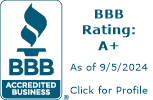As the cold weather reaches full force during the winter season, many property owners express concern about high levels of indoor humidity and what that moisture can do to their homes and businesses. More specifically, they are concerned about the potential for high moisture levels to result in the growth of mold, putting their homes, businesses, and health at risk. To the surprise of many, mold can grow in just about any condition, though it tends to prefer warm, hot, and humid conditions. Florida’s temperate year-round climate, high degrees of insulation in residential and commercial properties, and consistently high annual humidity levels make properties within our state particularly vulnerable to mold.
Whether it follows water damage, roof damage, water leak detection, a water leak emergency or another event, an infestation of mold and mildew can put your property and health at risk. Here, our Gainesville contractors answer four common questions about mold in your home. Contact our restoration company today to learn more about our expert mold removal and mold restoration and request a quote!
1. Can Mold Grow In Cold Temperatures?
Yes! It may be surprising, but mold can grow in the cold. The majority of mold types need high levels of humidity and warmth to develop, which is why mold infestations are more likely in the summer and springtime than the colder temperatures. But there are many different types of mold, and some of those types have evolved to breed and spread during the coldest seasons of the year, like the winter months. If you consider the fact that your home’s interior temperature is typically much warmer and more humid than the frigid outdoor air and that mold can easily find sources of food and moisture in your home, you might realize that your home is susceptible to mold growth even in the winter season.
2. What Mold Types Grow In Cold Temperatures?
There are three primary types of mold that grow in the winter: Cladosporium, Alternaria, and Penicillium. Alternaria is a fungi genus, and the species within that genus are common plant pathogens. This type of mold grows vigorously in colder temperatures, especially in structures where there is moisture. Alternaria usually appears gray or black in color, and when it grows indoors, it is often found in bathtubs, showers, bath mats, within the walls, or on shower curtains. Cladosporium is a genus that comprises some of the most common types of mold species that grow both indoors and outdoors.
This mold can survive in temperatures as low as 39.2 degrees Fahrenheit. The most common indoor species within the Cladosporium genus typically appear green or gray in color. Penicillium is a genus with species that can survive in cold and heat, making it common throughout each season of the year. It thrives in conditions with high humidity and moisture levels and is commonly found in wet building materials, carpets, mattresses, soft furnishings, and other porous materials.
Unfortunately,
3. Where Does Mold Grow In Winter?
In the winter season, mold can hide just about anywhere in your home, spreading throughout your structure’s interior spaces. You might expect to find mold in the most conspicuous places, such as between your bathtub tiling, lining your shower curtain, or around your kitchen sink. But in many cases, winter mold will hide in places that are hard to see or reach, such as inside the walls of your home. This means that you might not be able to access some of the most common places mold grows during cold temperatures.
You might detect mold by its telltale signs, including detecting a musty smell or foul odor, cold or flu-like symptoms experienced by you or your family members, allergic reactions, asthma symptoms or worsening of asthma, or other changes in your home or health. If you notice any of these common signs of mold, it’s critical that any mold be identified and removed right away.
4. How Do You Prevent Mold Growth In Winter?
Fortunately, despite the fact that mold can grow any time of year in your home, there are ways to reduce the risk of mold developing and spreading. One of the most common issues in a home that increases the risk of mold is a lack of proper ventilation. As such, you should ensure that there is sufficient ventilation and airflow, particularly in your home’s most moisture-filled areas, like the bathrooms and kitchen.
You should also ensure that your home’s indoor humidity is within the proper range, based on its size, your HVAC system, and other factors. Be sure to have any water leaks remediated the moment they occur, and remove any soft furnishings from wet areas right away. You should also clean out your air ducts at least once each season and change your air filter regularly. But no matter how hard you attempt to prevent mold, it can still grow despite your best efforts.
Call Our Gainesville Mold Remediation Experts
In many cases, mold can appear and spread without warning. It can occur even if you improve the amount of ventilation throughout your home, combat moisture wherever it is present, and control your home’s indoor humidity levels. Mold can creep up in hidden spaces that are free from sight or simple and convenient access, making identifying and removing it early on that much more difficult for homeowners.
The best thing you can do to stop mold, whether it occurs in the middle of the hottest time of the year or in the winter months, is to call our Gainesville restoration experts at Maven Construction Group. We offer professional mold removal in Gainesville with free estimates and reliable service available 24/7 for the benefit of your home and family in North Central Florida. Contact us today to learn more about our services and to book an appointment!


